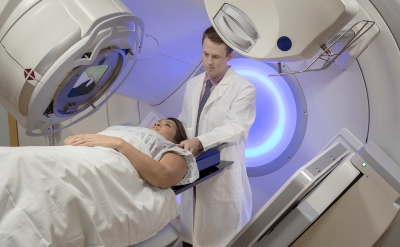For individuals with breast cancer, the potential for toxicity after radiotherapy is a real concern. Yet as a multi-center team of Italian researchers recently found, these patients also feel that a genetic test designed to predict such side effects may represent an opportunity to improve their quality of life after therapy.
Such a test, the researchers concluded, may ultimately give way to more tailored radiation treatment in the era of personalized therapies.
Reporting online in La Radiologica Medica, the investigators explained that the aim of the study was to “explore breast cancer patient’s perspective on future genetic testing for prediction of toxicity after breast radiotherapy.”

To achieve this goal, they analyzed data from patients enrolled in the Italian branch of the REQUITE project, an international effort designed to predict which patients are more likely to experience side effects from radiotherapy. Conducted at the National Cancer Institute in Milan, patients underwent semi-structured interviews within one month of the end of their radiotherapy treatment.
Interviews were performed by two radiation oncologists and a radiotherapy technician who had been previously trained by a clinical psychologist with oncology experience. The interviews were characterized by a set of pre-defined questions geared toward assessing patient interest in undergoing the genetic test, as well as their perceptions of such a test’s potential utility and disadvantages.
According to lead author Lara Bellardita, MD, of the Fondazione IRCCS Istituto Nazionale Dei Tumori, in Milan, Italy, a total of 18 interviews were conducted and subsequently analyzed. From these, 45 initial codes were combined into nine themes, which were then clustered into two primary macro-areas: opportunities and challenges.
It was found that all patients understood the aim of genetic testing. Furthermore, they all appreciated the intrinsic opportunity of genetic testing to help improve physician confidence with respect to the treatment.
The survey also queried patients about their perspectives on potential side effects from radiotherapy. Here the investigators found that although most patients felt prepared to undergo radiotherapy, they also experienced a notable amount of fear with respect to the impending therapy. Perhaps not surprisingly, the prevailing emotions among respondents were anxiety and fear, although these were not connected to potential results from the genetic test.
Finally, many of the respondents considered it important to have as much reliable information available as possible, including information regarding potential negative experiences.
In light of these findings, the investigators concluded that genetic testing may open the door to a more targeted therapeutic experience for individuals with breast cancer. “A genetic test could be an opportunity because generate knowledge and give patients a dynamic role in the decision-making approach,” the authors wrote. “Prediction of single patient radiosensitivity before radiotherapy could prompt suggestion to entail a more and more tailored radiation treatment in the era of personalized approach.”
